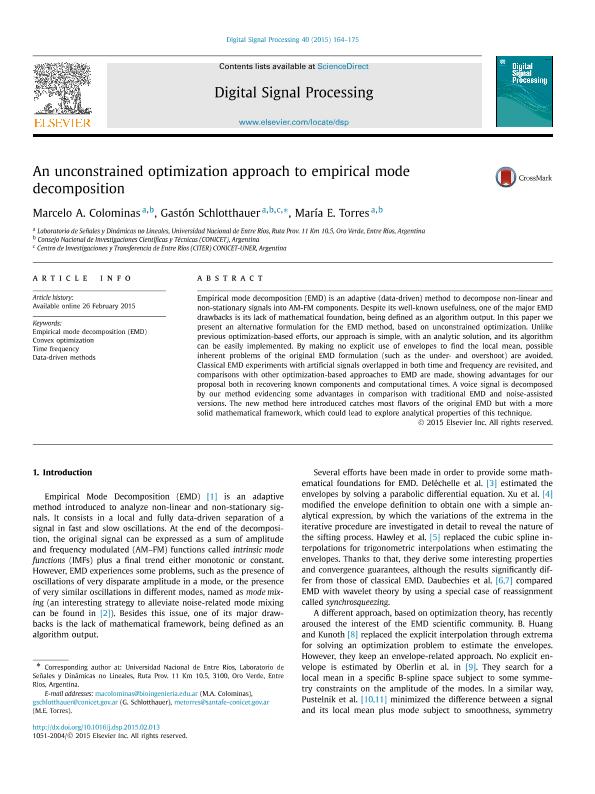Artículo
An unconstrained optimization approach to empirical mode decomposition
Fecha de publicación:
05/2015
Editorial:
Academic Press Inc Elsevier Science
Revista:
Digital Signal Processing
ISSN:
1051-2004
Idioma:
Inglés
Tipo de recurso:
Artículo publicado
Clasificación temática:
Resumen
Empirical mode decomposition (EMD) is an adaptive (data-driven) method to decompose non-linear and non-stationary signals into AM-FM components. Despite its well-known usefulness, one of the major EMD drawbacks is its lack of mathematical foundation, being defined as an algorithm output. In this paper we present an alternative formulation for the EMD method, based on unconstrained optimization. Unlike previous optimization-based efforts, our approach is simple, with an analytic solution, and its algorithm can be easily implemented. By making no explicit use of envelopes to find the local mean, possible inherent problems of the original EMD formulation (such as the under- and overshoot) are avoided. Classical EMD experiments with artificial signals overlapped in both time and frequency are revisited, and comparisons with other optimization-based approaches to EMD are made, showing advantages for our proposal both in recovering known components and computational times. A voice signal is decomposed by our method evidencing some advantages in comparison with traditional EMD and noise-assisted versions. The new method here introduced catches most flavors of the original EMD but with a more solid mathematical framework, which could lead to explore analytical properties of this technique.
Archivos asociados
Licencia
Identificadores
Colecciones
Articulos(SEDE CENTRAL)
Articulos de SEDE CENTRAL
Articulos de SEDE CENTRAL
Citación
Colominas, Marcelo Alejandro; Schlotthauer, Gaston; Torres, Maria Eugenia; An unconstrained optimization approach to empirical mode decomposition; Academic Press Inc Elsevier Science; Digital Signal Processing; 40; 5-2015; 164-175
Compartir
Altmétricas




